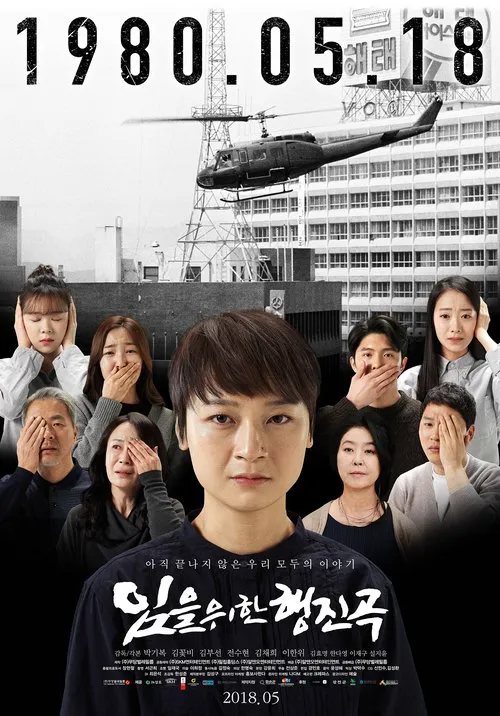The March for the Lost

Handlung
In "The March for the Lost," director Lee Hae-jun masterfully weaves a gripping tale of loss, trauma, and the indomitable power of human resilience. The story centers around a father, whose untimely and mysterious death in May of 1980 sends shockwaves throughout the lives of his loved ones. The ripple effects of his passing are felt most deeply by his wife and young daughter, who struggle to come to terms with the loss and the void left behind. The mother, though fragile and burdened by the weight of her grief, is determined to keep the memory of her husband alive, especially on May 18th, the anniversary of his passing. Her fixation on this date becomes an all-consuming force that shapes her every waking moment. The presence of a bullet in her head serves as a haunting reminder of the tragic circumstances surrounding her husband's death, and the secrets that may have been left unsolved. Meanwhile, the nation's greatest comedian, Hee-soo, has become a beloved figure in the world of entertainment. He uses his wit and humor to bring laughter and joy to those around him, but beneath the surface, he is harboring his own secrets and demons. As the story unfolds, Hee-soo becomes increasingly fascinated with the enigmatic mother, whose unwavering devotion to her deceased husband resonates deeply with him. As the May 18th anniversary approaches, the mother's behavior becomes more erratic and her grip on reality begins to slip. Her daughter, desperate to help her mother and hold onto the memories of her father, sets out to uncover the truth behind his mysterious death. This quest for knowledge leads her to Hee-soo, who, through their chance encounters, finds himself drawn into the mother's world. As Hee-soo delves deeper into the mystery surrounding the father's death, he begins to confront his own personal demons. His seemingly effortless charm and humor start to falter, and he is forced to confront the fragility of his own mental state. The line between comedy and tragedy blurs, and Hee-soo is faced with the possibility of losing himself in the process of helping the mother and her daughter find answers. The March for the Lost is a poignant exploration of the human experience, where joy and pain, light and darkness, coexist in a delicate balance. Director Lee Hae-jun's masterful handling of the narrative weaves together multiple storylines, creating a rich tapestry of emotions and experiences that transcend the boundaries of the characters' individual struggles. As the story builds towards its intense and emotionally charged climax, the audience is left to ponder the true meaning of loss and the resilience of the human spirit. The film's themes of grief, trauma, and the power of human connection serve as a reminder that even in the darkest moments, there is always hope for healing and redemption. Ultimately, "The March for the Lost" is a powerful tribute to the indomitable human spirit, a testament to the enduring power of love and the unbreakable bonds between family members and friends. The film's haunting portrayal of the mother's journey, Hee-soo's emotional transformation, and the young daughter's quest for truth will stay with the viewer long after the credits roll, leaving a lasting impression that resonates deep within the heart.
Kritiken
Empfehlungen



